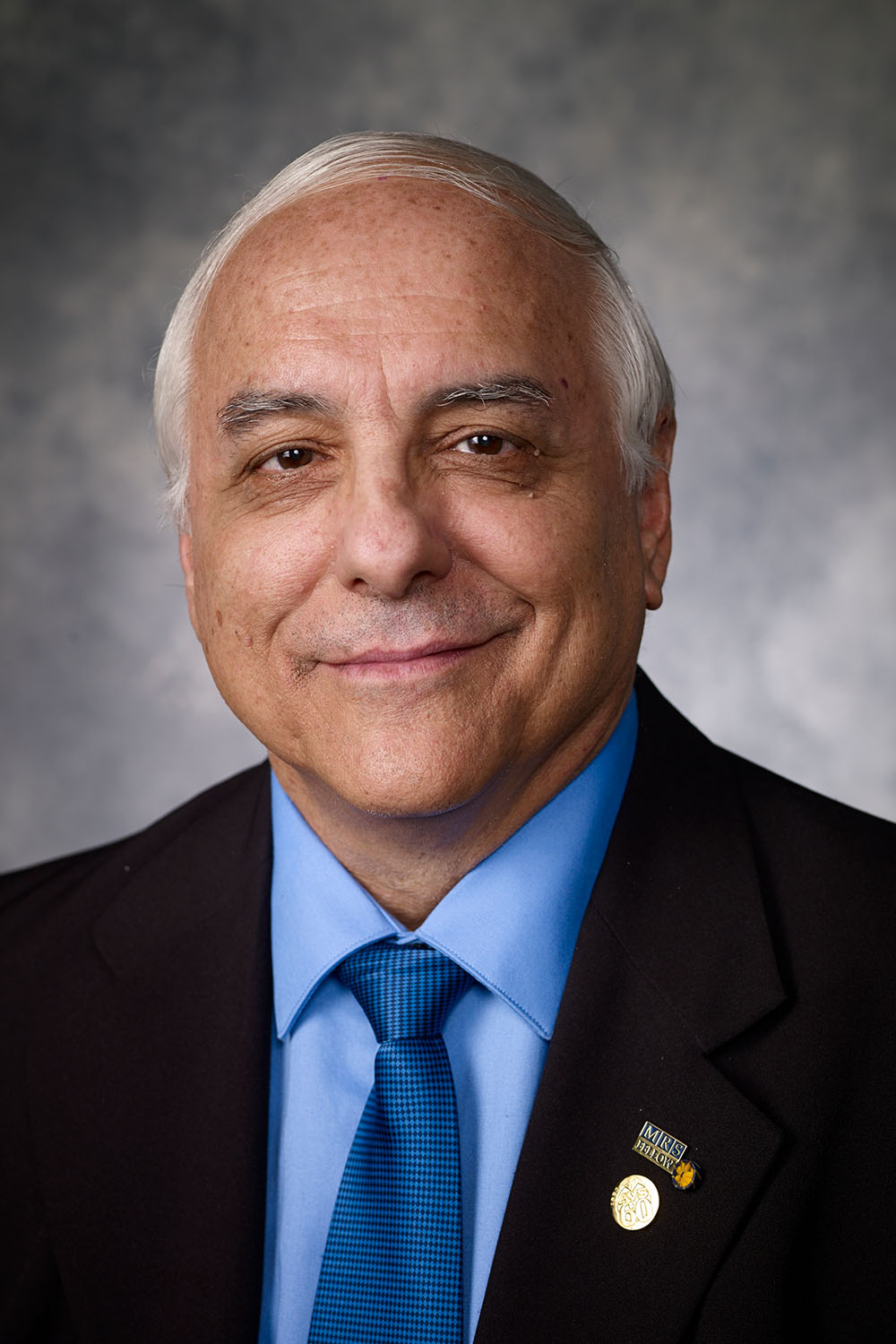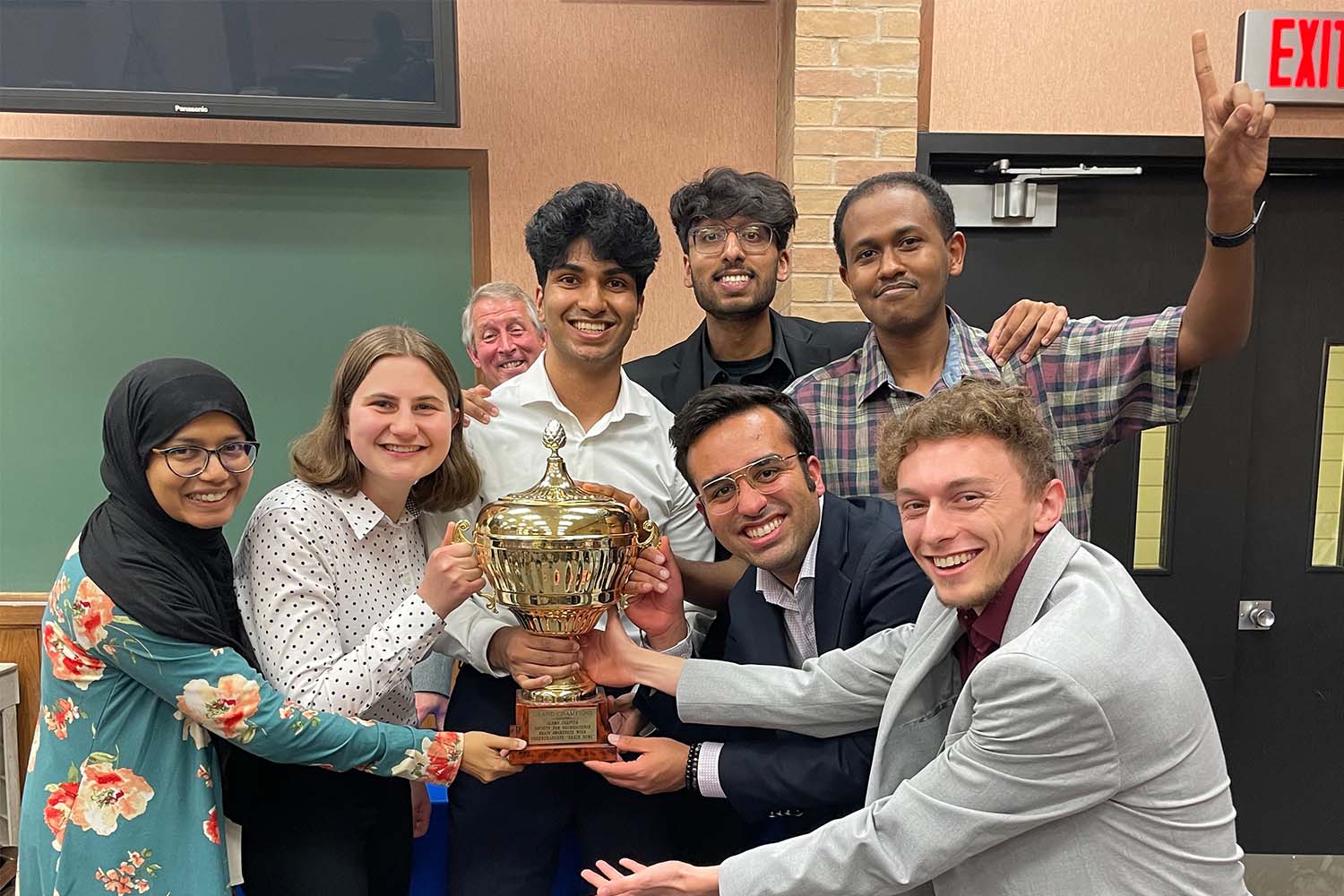
Dr. Orlando Auciello, professor of materials science and engineering and of bioengineering at The University of Texas at Dallas, has been selected to receive the 2023 International Association of Advanced Materials (IAAM) Scientist Medal, which recognizes scientists for notable breakthroughs and progress in advanced materials science, engineering and technology.
Auciello, holder of the Distinguished Chair in Engineering, is a fellow of both the American Association for the Advancement of Science and the Materials Research Society (MRS), and served as MRS president in 2013. He will receive the award and deliver the Scientist Medal Lecture at the IAAM Fellow Summit in August in Stockholm.
“I am honored by the IAAM Scientist Medal recognition for ‘distinctive contributions toward interfacing the materials for multi-inter-transdisciplinary fields of science, engineering and technology,’” Auciello said. “I am also honored by UTD’s support, through my distinguished chair position, enabling a biomedical engineering graduate student to make a major contribution in the development of a revolutionary UNCD-coated metal dental implant that will improve the quality of life of people worldwide.”
Auciello contributed to materials science and technological applications of multifunctional oxide films applied to non-volatile ferroelectric memories marketed by companies, including Panasonic Corp. and Texas Instruments Inc., since the 1990s.
As a researcher at Argonne National Laboratory from 1996 to 2012, Auciello and his colleagues developed ultrananocrystalline diamond (UNCD) thin film technology, supported by their 17 patents. Advanced Diamond Technologies Inc., a company Auciello co-founded in 2003 and sold in 2019, marketed the technology for industrial products worldwide.
Auciello co-founded Original Biomedical Implants in 2012 in the U.S., before joining the Erik Jonsson School of Engineering and Computer Science. The company expanded to Mexico in 2016 to develop new generations of biomedical devices and prostheses based on the UNCD coating.
At UTD, Auciello’s research involving biomedical engineering graduate Karam Kang MS’17 demonstrated that UNCD-coated dental implants eliminate the risk of failure of metal implants. In clinical trials at a Querétaro, Mexico, clinic, 50 patients have received UNCD-coated implants since 2018.
Auciello also helped develop the Argus II Visual Prosthesis System, which restores partial vision to people blind from the degeneration of the retina’s photoreceptors. The Argus II device was named by Time magazine as one of the best inventions of 2013. Auciello continues to research and develop a corrosion-resistant UNCD-encapsulated silicon microchip fully implantable inside the eye.
Comets Conquer Brain Bowl Rivals

A team of six University of Texas at Dallas students out-thought and bested their opponents in the 2023 Brain Bowl, a quiz bowl-style, neuroscience competition held April 11 at the UT Health Science Center at San Antonio.
The Comets regained the trophy they last claimed in 2018, winning the event for a fourth time. Their opponents this year were from Trinity University and Baldwin Wallace University in Ohio. The competition was not held from 2020 to 2022 due to the COVID-19 pandemic.
The Brain Bowl covered topics including neurophysiology, neuroanatomy, brain and behavior, neurochemistry, and neuropharmacology (drugs and the brain). The contest consisted of three rounds of buzzing in to answer questions, then a final wager-based challenge question.
Dr. Rukhsana Sultana, associate professor of instruction in neuroscience in the School of Behavioral and Brain Sciences, helped prepare the team for the event.
“This was a great experience for our students to consolidate and apply all the information they have learned in various courses and compete with their peers in a positive, reinforcing environment,” she said. “The goal of the UTD neuroscience program is to train our future physicians, neuroscientists and educators. This competition requires the quick thinking that all those roles require.”
Members of the UTD team are biology senior Rohan Jupelly; biochemistry junior George Kidane; neuroscience seniors Grace Moore, Landon Norman and Anirudh Rayanki; and neuroscience junior Aryan Verma. Verma and Jupelly are both Collegium V Honors students and National Merit Scholars; Moore is also a Collegium V student.
Verma credited Sultana’s guidance and support as vital to the team’s success.
“She assembled a well-rounded, diverse group of students who specialized in various aspects of neuroscience, then crafted challenging practice questions to sharpen our critical thinking skills,” he said.
Verma said that representing UT Dallas in competition against other universities was “an electrifying and humbling experience.”
“It is an opportunity to demonstrate the University’s unwavering commitment to academic excellence and showcase UT Dallas as a breeding ground for future neuroscience leaders,” he said.
Accolades is an occasional News Center feature that highlights recent accomplishments of The University of Texas at Dallas faculty, students and staff. To submit items for consideration, contact your school’s communications manager.